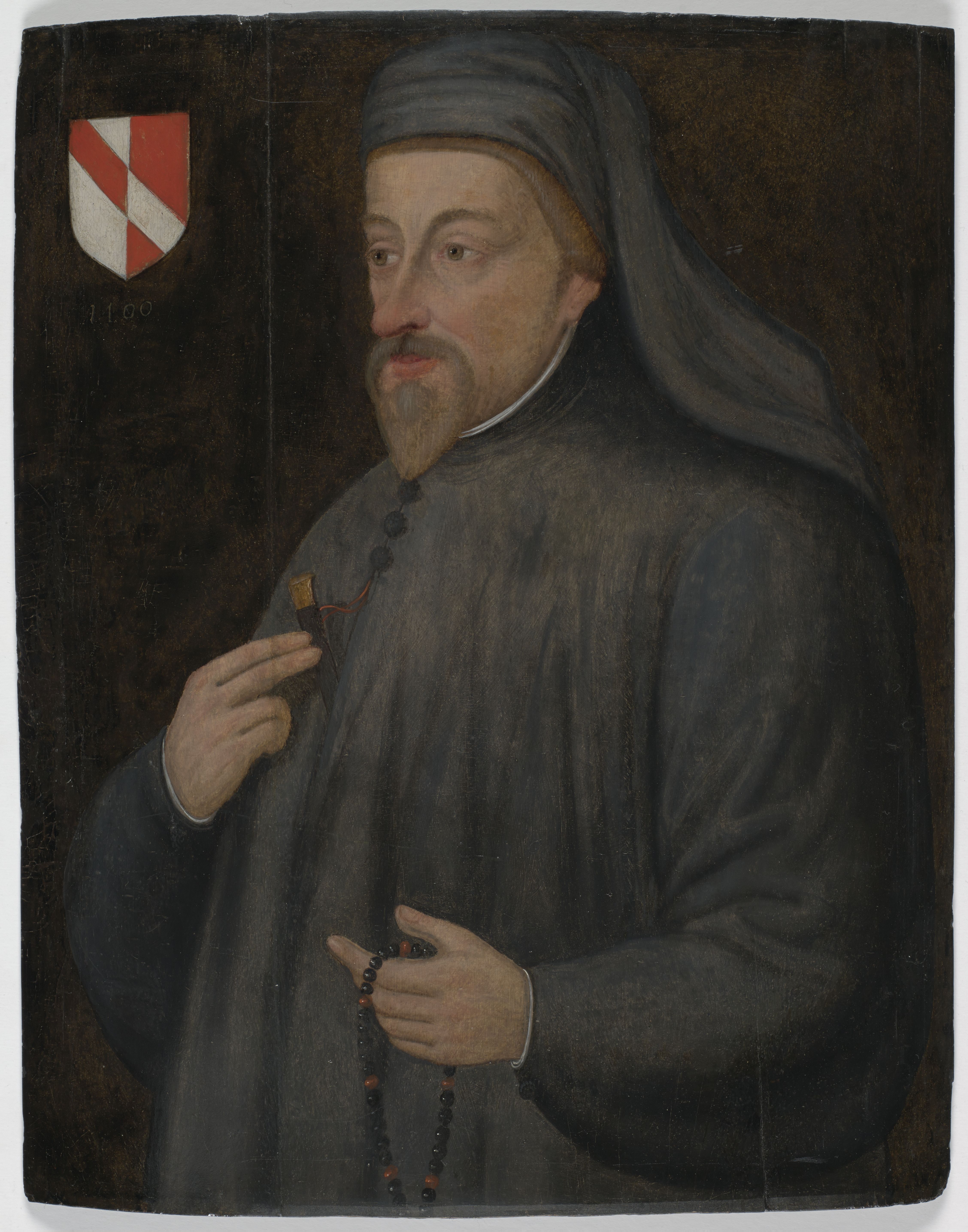Frases célebres de Geoffrey Chaucer
“¿Qué hay mejor que la sabiduría? Una mujer. ¿Y qué hay mejor que una buena mujer? Nada.”
Fuente: Chaucer, Geoffrey. Los cuentos de Cantorbery, Volumen 1. Editorial Reus (s.a.), 1921. p. 233.
Frases de hombres de Geoffrey Chaucer
Frases sobre el corazón de Geoffrey Chaucer
Geoffrey Chaucer Frases y Citas
“nada que es completo en sí mismo es más fuerte cuando se divide.”
Cuentos de Canterbury
Cuentos de Canterbury
“El amor es una cosa tan libre como el espíritu.”
Cuentos de Canterbury
Cuentos de Canterbury
Fuente: Chaucer, Geoffrey. Cuentos de Canterbury. Editorial e-artnow, 2014. ISBN 9788026806868.
Fuente: El cuento de la comadre de Bath, comienzo.
“Lo que comenzó mal, rara vez y con muchísima dificultad concluirá bien".”
Cuentos de Canterbury
“según Séneca, "el airado y enojado no puede hablar de algo sin vituperarlo".”
Cuentos de Canterbury
“soy el árbol que florece antes de que el fruto madure.”
Cuentos de Canterbury
“la plenitud de la felicidad consistía en el deleite perfecto”
Cuentos de Canterbury
“el que habla mal no puede nunca recobrar sus palabras.”
Cuentos de Canterbury
“es imposible hallar al caballo perfecto en todos los aspectos”
Cuentos de Canterbury
Contestación del caballero a la reina respondiendo a su requerimiento de que averigüase qué es lo que más desean las mujeres.
Cuentos de Canterbury
Fuente: El cuento de la comadre de Bath.
“El proverbio dice que muchos pocos hacen un mucho.”
Cuentos de Canterbury
Original: «The proverbe saith that many a smale maketh a grate».
Geoffrey Chaucer: Frases en inglés
The Franklin's Tale, l. 767-770
The Canterbury Tales
“Your duty is, as ferre as I can gesse.”
The Court of Love, line 178
Bartlett's Familiar Quotations, 10th ed. (1919)
“He was a verray, parfit gentil knyght.”
General Prologue, l. 72
The Canterbury Tales
“That he is gentil that doth gentil dedis.”
The Wife of Bath's Tale, l. 6752
The Canterbury Tales
The Wife of Bath's Prologue, l. 525-529
The Canterbury Tales
“Oon ere it herde, at tothir out it wente”
One ear heard it, at the other out it went
Book 4, line 434
Troilus and Criseyde (1380s)
The Wife of Bath's Tale, l. 6695
The Canterbury Tales
“Nature, the vicar of the Almightie Lord.”
Parlement of Foules, l. 379
“A Clerk ther was of Oxenforde also.”
General Prologue, l. 287
The Canterbury Tales
“Truth is the highest thing that man may keep.”
The Franklin's Tale, l. 11789
The Canterbury Tales
“Men sholde wedden after hir estat,
For youthe and elde is often at debat.”
The Miller's Tale, l. 121-122
The Canterbury Tales
“Right as an aspen lefe she gan to quake.”
Fuente: Bartlett's Familiar Quotations, 10th ed. (1919), Canterbury Tales, L. 1201
“O little booke, thou art so unconning,
How darst thou put thy-self in prees for drede?”
The Flower and the Leaf, line 59
Bartlett's Familiar Quotations, 10th ed. (1919)
“Up rose the sonne, and up rose Emelie.”
The Knight's Tale, l. 2275
The Canterbury Tales
“The gretest clerkes ben not the wisest men.”
The Reeve's Tale, l. 4051
The Canterbury Tales
Prologue of the Legend of Good Women, line 41
Bartlett's Familiar Quotations, 10th ed. (1919)
“And yet he had a thomb of gold parde.”
General Prologue, l. 565; referencing the proverb, "Every honest miller has a golden thumb".
The Canterbury Tales
“Nowher so bisy a man as he ther nas,
And yet he semed bisier than he was.”
About the Sergeant of Law
General Prologue, l. 323-324
The Canterbury Tales
The Complaint of Chaucer to His Purse, l. 19–21
Prologue of the Legend of Good Women, line 183
Bartlett's Familiar Quotations, 10th ed. (1919)
“The smylere with the knyf under the cloke.”
The Knight's Tale, l. 1141
The Canterbury Tales
“This flour of wifly patience.”
The Clerk's Tale, part v., l. 8797
The Canterbury Tales
“The proverbe saith that many a smale maketh a grate.”
Persones Tale
Bartlett's Familiar Quotations, 10th ed. (1919), Canterbury Tales
“His studie was but litel on the Bible.”
General Prologue, l. 440
The Canterbury Tales
“So was hire joly whistle wel ywette.”
The Reeve's Tale, l. 4153
The Canterbury Tales
